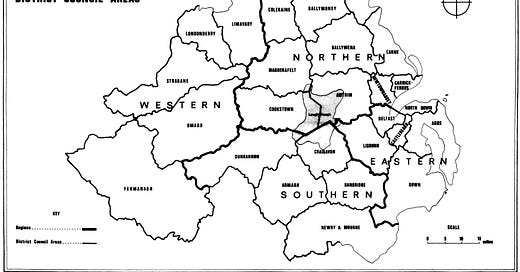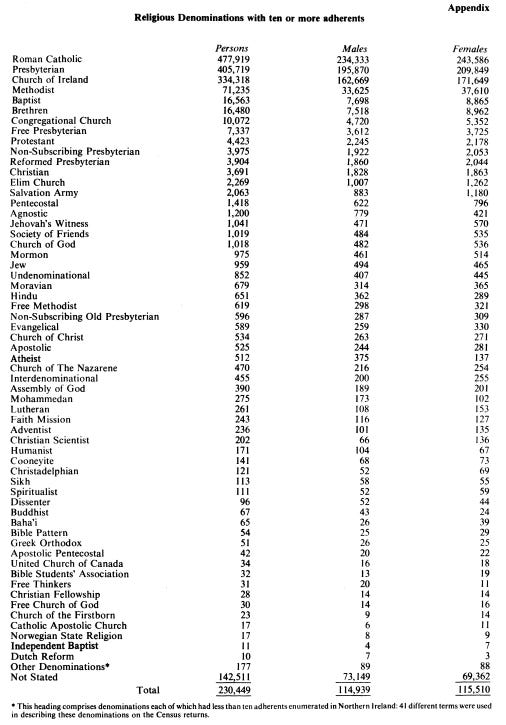In April 1971, Barbra Streisand records "We've Only Just Begun". This song's title resonated with the political developments that took place in Northern Ireland because the feeling was that it was hard to see an outcome to the ongoing conflict.
April 1971 started with some political developments when, during a debate at Westminster on Northern Ireland, Harold Wilson, then leader of the Labour Party, claimed that a draft Bill for the imposition of direct rule existed.
On Saturday the 10th of April, Republican commemorations held in Belfast of the Easter Rising (in 1916 in Dublin) provided an opportunity to gauge public support for the two wings of the Irish Republican Army (IRA). The march organised by the Official movement appeared only to attract half the level of support as that organised by the Provisionals.
The 21st of April saw a visiting British Navy survey launch, the Stork, being seized during the night from its mooring in the harbour of Baltimore, near Cork. It was towed to sea and destroyed with explosives, police sources reported. No one was aboard at the time. Part of the boat washed ashore later.
Hydrographic survey is the science of measurement and description of features which affect maritime navigation, marine construction, dredging, offshore oil exploration and drilling and related activities. Strong emphasis is placed on soundings, shorelines, tides, currents, seabed and submerged obstructions that relate to the previously mentioned activities.
In London, the Defense Ministry confirmed the sinking but refused to speculate about who was responsible. At first, it was thought that another launch had also been destroyed, but the boat turned out to be the Stork's dinghy and was not damaged.
The Irish Republican Army claimed responsibility for the destruction of the 36‐foot boat, which had conducted a hydrographic survey in cooperation with Ireland.
On the 23rd of April, there were further political developments, with an analysis of the current situation in Northern Ireland by E Gallagher of the Department of Foreign Affairs, with particular emphasis on the position of Northern Ireland Prime Minister Brian Faulkner with regard to the British government’s Downing Street Declaration of August 1969.
The analysis stated;
The North remains like a volcano but one whose eruptions follow no particular pattern. This makes it extremely difficult to make medium-term forecasts although very short-term forecasting is possible and the long-term pattern, given certain important calculations. is fairly obvious.
The main assumptions are the following:
That the British Government will not change its general policy based on the Downing Street Declaration.
That Mr Brian Faulkner, or any other Northern Prime Minister. and his Government will have to implement this Policy with some wriggling at the edges of it which will have to be carefully watched.
That the Taoiseach's general policy will continue.
The analysis was summarised as follows;
I would say that Mr Faulkner is in the position of a man propped up by his enemies ranging from extreme Unionists to the Provisional IRA and from moderate Unionists to the political Opposition. His additional strength, so far as moderate Unionists are concerned, is that they have no alternative to the main policy imposed by Westminster on them so there is no point in their seeking an alternative to Faulkner. For these reasons, he stands some chance of surviving. That is as much as one could say at present.
The Northern Ireland census was held on the 25th of April. Various reports based on the census were published over the next few years. The total population was enumerated at 1,519,640. A large number of people (142,500) refused to state their religious denomination. This meant that the percentage of Catholics recorded as 31.4% (477,921) was a minimum figure. Statistical estimates of the probable size of the Catholic population put the figure at 36.8% (559,800).





